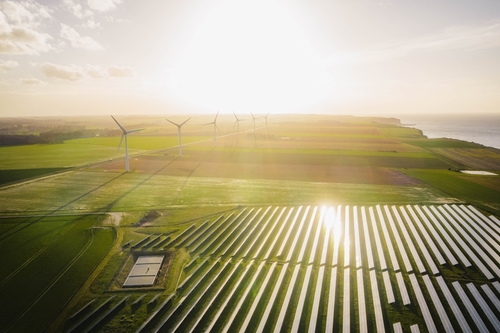Industrial, Solar, Sourcing Renewables - November 4, 2024
Samsonite Commits to Maintain 100% RE
Samsonite International S.A. announced an ambitious near-term science-based climate target in alignment with the criteria of the Science Based Targets initiative (SBTi).
The company, which operates a portfolio of customer-centric suitcase brands including Samsonite, Tumi and American Tourister, commits to continuing to use 100% renewable electricity in all of the group's own operations.
The company will also significantly increase recycled materials used in products to reduce Scope 3 emissions from purchased goods and services 52% by 2030 on an intensity basis per unit gross profit. The company's new target is measured from a 2022 base year and was submitted to SBTi for validation last month, and the science-based climate target applies collectively to all of the group's brands worldwide.
"We are proud to leverage our leadership position to create a path towards a more sustainable future for the industry," said CEO Kyle Gendreau in a statement. "We are partnering with our suppliers to significantly expand the use of recycled, lower-carbon materials while maintaining our long-standing commitment to durability."
According to the company's GHG accounting, over 95% of the group's emissions stem from its value chain (Scope 3) with almost 80% of its emissions coming from purchased goods and services, including raw materials used for internal manufacturing. To achieve its target, the company is focused on reducing material-related emissions in its global value chain by significantly increasing recycled content of the various types of plastics, aluminum and other materials of which its products are made.
The group's global teams have built GHG emissions reduction roadmaps, specifying actions they will take to achieve the new 2030 target.
To address emissions from its own operations, the group will maintain 100% renewable electricity across its retail stores, manufacturing and distribution facilities, and offices through a mix of on-site solar power generation, participation in utility and municipal green power programs, and purchases of renewable energy certifications (RECs) and energy attribution certificates (EACs).
The company will also continue to implement energy efficiency and decarbonization measures at its facilities. The group achieved 100% renewable electricity in its own operations for the first time in 2023, two years ahead of its target date, and reduced the carbon intensity of its own operations by 85% compared to a 2017 baseline, far surpassing its goal of 15% by 2025.
Share this valuable information with your colleagues using the buttons below:
« Back to NewsStay Up-To-Date












